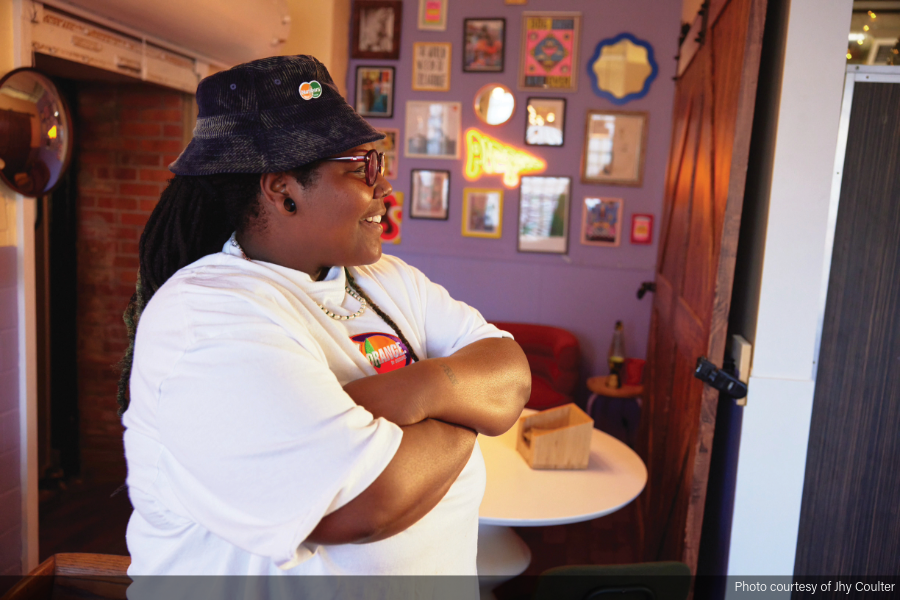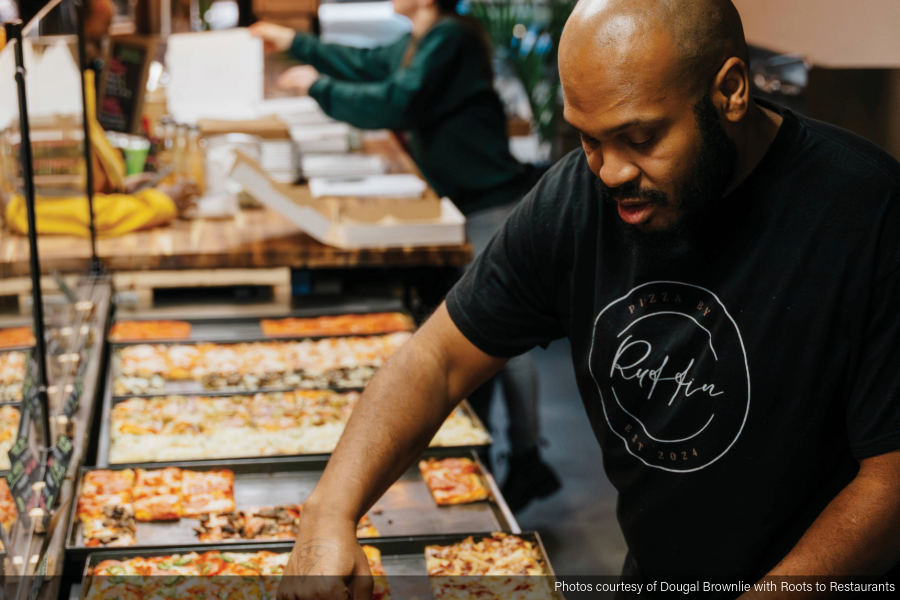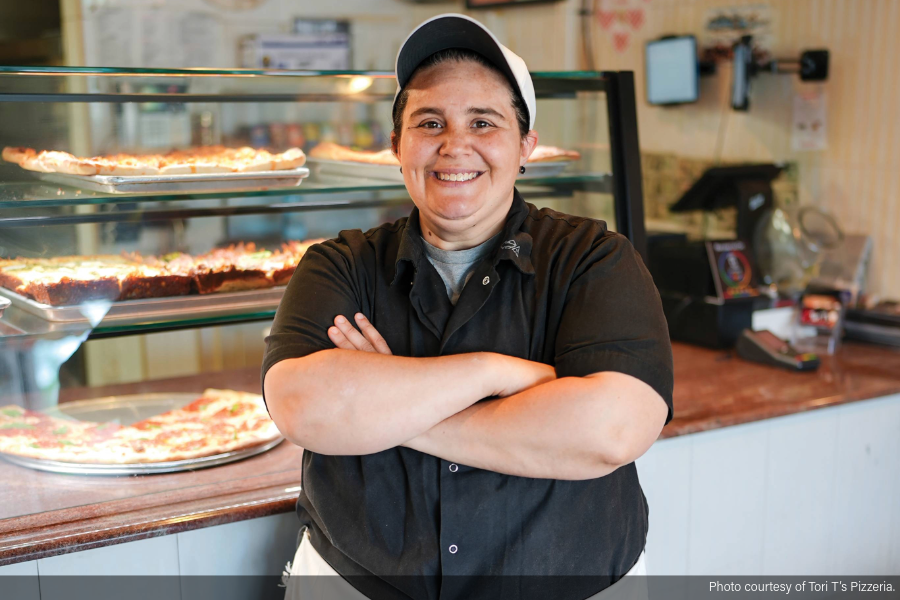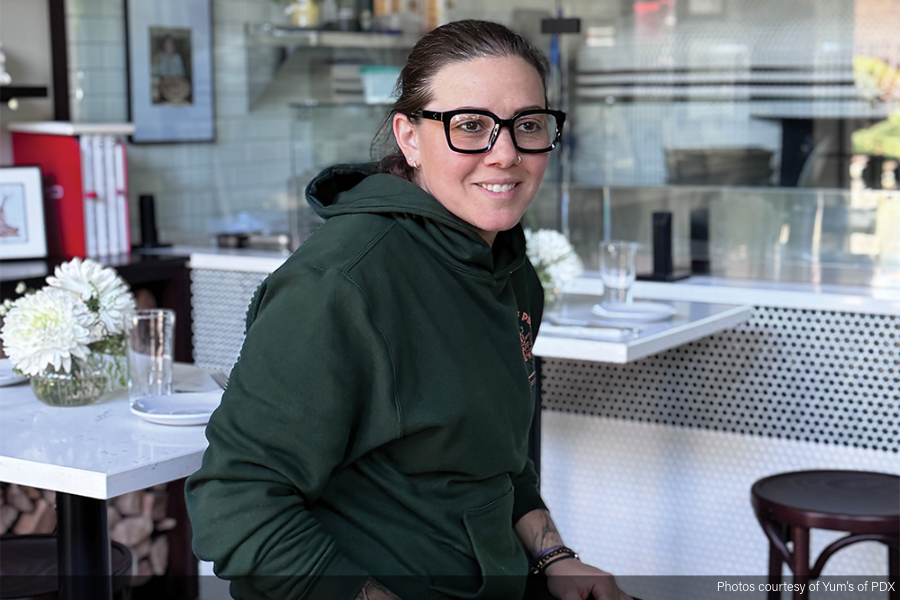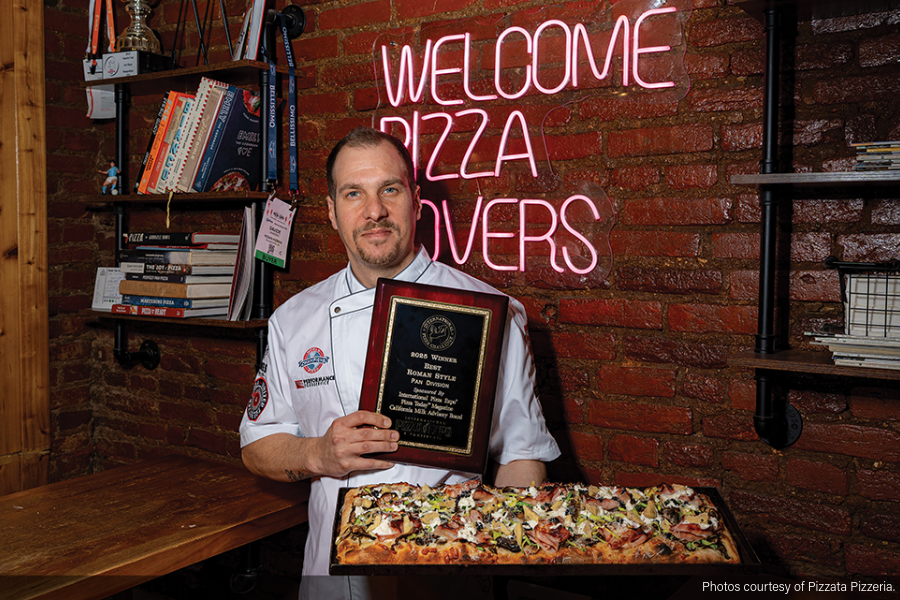Speak like a human. There’s a tendency when people write to conduct the written speech as if it’s a formal term paper they’re submitting to a college professor. This formality is an attempt at “professionalism,” or what they think would pass for “professional.” Here’s the thing about professionalism. It’s super cold, and it comes off as less than genuine. Instead, speak like a human when you write. That goes for any social media post responding to a customer, coupon verbiage, etc. Speak like a human and you will get a human reaction.
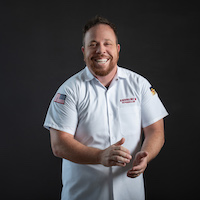
Mike Bausch, owner, Andolini’s Pizzeria
Case in point: let’s look at the word patronage. I often see the word patronage in written form from small business owners, but I’ve rarely heard someone say it out loud.
Imagine this for a moment. A great customer of yours is leaving your restaurant after another satisfying experience. You know them and make small talk with them every week. Now they’re getting up to leave, do you say: “And, also, thank you for your continued patronage.” If you would actually speak like that, then cool, I guess, but I doubt you do. You’d probably say something like, “Hey, and thanks a lot for coming in. We always appreciate it.” Because that’s what a human says, not the Response Bot 5000 that uses a word like patronage. So, write as you talk. It doesn’t hurt to clean up your grammar, and I highly advise learning a decent vocabulary to use when you speak. But if it’s not something you’d say in daily conversation, it should not be in your written word. The caveat of this is not to be completely informal either.
So, let’s give an example of a customer response, for something that’s gone wrong:
Too Formal
“We at Mom and Pop Pizzeria strive for the highest food standards in quality, and sincerely apologize for the experience that you had at Mom and Pop Pizzeria. Our prideful expectation is to bring only the finest in quality and ingredients to your every meal. And we appreciate your patronage and continued loyalty and support.
Regards,
Management.”
That sounds like gobbledygook horse manure to someone reading it. Another bad response would also be this:
Too Informal
“Hey, man. Like, for real, we’re super bummed about what happened the other night, but you know how it goes. Hope we catch you later.”
That won’t fly either.
There’s the just-right approach of saying and speaking as you would if that person were right in front of you and you’re not an idiot.
How about this?
“I’m sincerely sorry that that happened. It’s not okay. And I own that isn’t what should’ve happened. You trusted us with your meal, and we screwed up. We care, and I want to make this right. We appreciate all the times you’ve come in and hope to see you again because you’re a great customer, and that’s not lost on me.
Sincerely, – Mike”
That level of genuine, while also to the point, gets way further than overly professional or not professional. Being genuine always takes the cake, and speaking like a human will always win.
MIKE BAUSCH is the owner of Andolini’s Pizzeria in Tulsa, Oklahoma. Instagram: @mikeybausch



